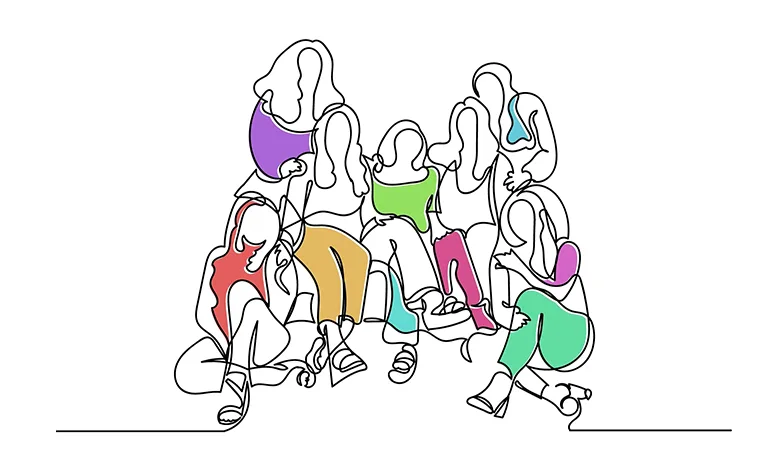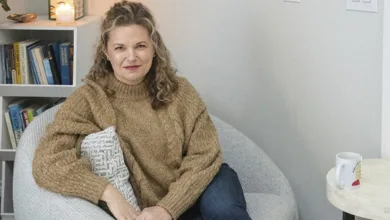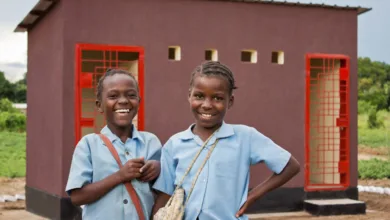Recollections: A reflection on friendship, distance, and time

My high school graduation class was very small—there were only 28 girls in white dresses on graduation day. We weren’t all “best friends,” but we knew each other reasonably well. It was a congenial group. Our senior yearbook class photo shows everyone with smiles on their faces.
Fast-forward 50 years to this year, when a classmate and I are organizing a class reunion. As Liv, my classmate, and I reach out to the others, several are lost entirely. Nearly a third have not kept in touch with anyone; perhaps they are deceased. We have no way to know. The rest are reachable either by email or Facebook. Many have married and enjoyed successful careers.
Interestingly, none of us (that I know of) still live near the school. Graduation was like a massive diaspora. The closest classmate lives 30 miles away, the farthest in Sweden. What was a close-knit community in high school did not transfer to adulthood.
High school through different eyes
My memories of the school (and teen years as a whole) are not entirely good, but I survived and moved on. Liv informed me that several of our classmates also did not have a good experience during those years and do not want anything to do with reconnecting.
To be fair, most of the bad feelings are about their home life, which transferred to their school experience. Perhaps I was clueless or not empathetic to the signs of problems.
Nevertheless, the conversation with Liv was illuminating. How differently we remember the same experiences. The teacher I held in high regard was another classmate’s “bête noire,” personal annoyance. The dress code we endured was humorous to me and oppressive to others.
Different memories, same roots: family and generational change
Looking back, my two siblings and I are good examples of varied recollections. Same parents, same household, same community: one sibling had a warm relationship with my mother, whereas I did not; the other sibling fondly remembers one house we lived in while I had warmer feelings about the other.
I was the only one musically inclined; two were campers, and the third hated camping. “Nature” or “nurture”? Genetic or experiential? What colors our memories so differently? What makes the memory portrait so different when the subject and palette are identical?
Zooming out, my generation used to hide under our school desks as a drill to prepare for an enemy attack during the Cold War years. Russia was the enemy then. It should not be surprising that my siblings and I would see the current Russian leadership as an extension of Stalin.
A generation later, Generation X does not share this school memory and has a less vitriolic opinion of Russia. Moving a generation earlier than mine, my parents had high regard for the military, having endured world wars within their memories; my generation, amid Vietnam, did not measure leadership and the military as highly.
My generation embraced fast food while both parents wanted sit-down, table-cloth dinners; my children’s generation lives on pizza, and their children on chicken nuggets. From party line telephones to landlines to cell phones and the internet — telephones, games, and communication in general have changed what we remember and how it is stored. If I were writing this column in high school, I would be handwriting in script or on a manual typewriter.
This means that memories are both genetic and experiential. The experiential aspect is shaped by our immediate surroundings and the times we live in.
From yearbooks to Zoom screens: reconnecting at a high school reunion
The 1960s were a time of rapid change. Women especially emerged from the shadows to graduate and claim legal rights beyond just the ability to vote. My recollection of that time forward is that men were slow to embrace these changes.
Growing up is difficult enough without all these external pressures tossing sand into the gears of the teen years.
Economic times were good; none of us had to work for tuition money; we never experienced rationing or want; we all lived in decent neighborhoods. We can be grateful for that.
The “plenty,” however, kept my classmates from bonding over struggles to obtain an education or to survive.
Upon graduation, we separated and, for the most part, did not keep in touch. Our reunion will include just a few of us who can make the trip and a big Zoom screen for the ones who cannot. It will be nice to reconnect. We have much to catch up on and some good times to share with each other.





